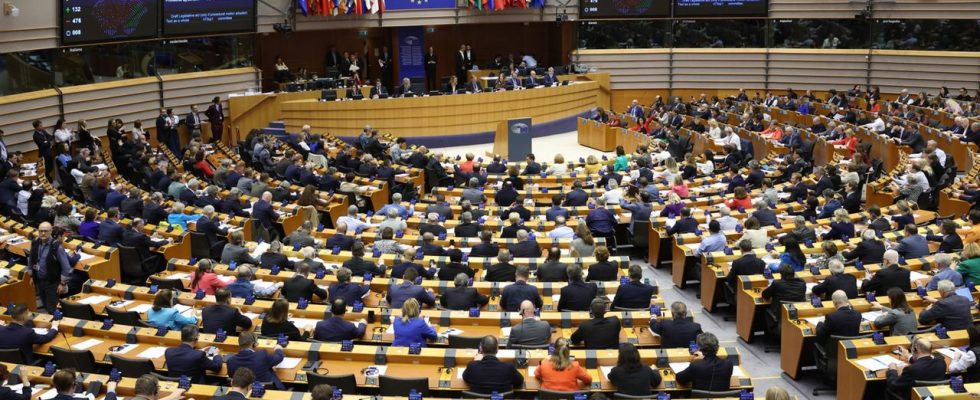The EU Parliament has approved the reform of the common asylum system with the expected majority, but criticism continues. The decision was preceded by another heated debate.
If Parliament causes the reform to fail, the EU as a whole will fail, Interior Commissioner Ylva Johansson once again persuaded MPs before the decision. It is time to repair the broken asylum policy and the pact will help protect the borders and regulate migration.
The approval in Parliament was supported by the EPP group, which also includes the CDU-CSU group, the Liberals and the Social Democrats – many of whom only reluctantly agreed, as SPD parliamentarian Gabriele Bischoff said. But the reform is better than maintaining the current situation. “And it really may be one of the most important decisions in this legislature, and it’s also certainly one of the hardest for many.”
Criticism from the Greens
Fast-track procedures under prison-like conditions should become the norm at the external borders for everyone who comes from countries with a recognition rate of less than 20 percent. In the event of a crisis, the procedure could also be extended to all those seeking protection and accommodation standards could be lowered. It is also particularly controversial that there should be a list of so-called safe countries of origin and transit to which arriving refugees can be deported, even without their application being checked.
In order to relieve the burden on countries at the external borders, a solidarity mechanism is also planned after recognized asylum seekers are distributed within the EU. If a country refuses to accept them, it can provide support in other forms, for example through money transfers, to support the outsourcing of refugee management to third countries.
It’s all about deterrence, says Erik Marquardt, migration policy spokesman for the Greens, who voted against the new regulations on key points.
We want to take responsibility for an asylum policy. But it has to be an asylum policy that works. Locking children and families in camps is not a solution.
Fear of the Right-wing populists?
Left leader Martin Schirdewan believes that the EU has abandoned its humanistic principles out of fear of right-wing populists. Others argue that if the EU shows itself unable to act on migration, the national conservatives will be even more strengthened. They mostly reject the reform package and hope to continue to benefit from the issue.
The EU parliamentarian Jordan Bardella is head of the French right-wing populist Rassemblement National and is almost as popular there as Marine Le Pen, the long-term rival of French President Emanuel Macron. Bardella says mass migration threatens Europe’s security, identity and stability. France’s president is trying to present the migration pact as a success for the EU. According to Bardella, he isn’t.
With this reform, Brussels wants to distribute more and more migrants across Europe. They constantly expect people to undergo new waves of migration. But the peoples of Europe don’t want that. They want their will and their voice to finally be heard.
After years of negotiations, the EU now wants to use its opportunity to get the refugee problem under control. The aim is to bring the common European asylum system into force before the European elections in June, although full implementation could take until the first half of 2026.
Matthias Reiche, ARD Brussels, tagesschau, April 10, 2024 8:53 p.m

